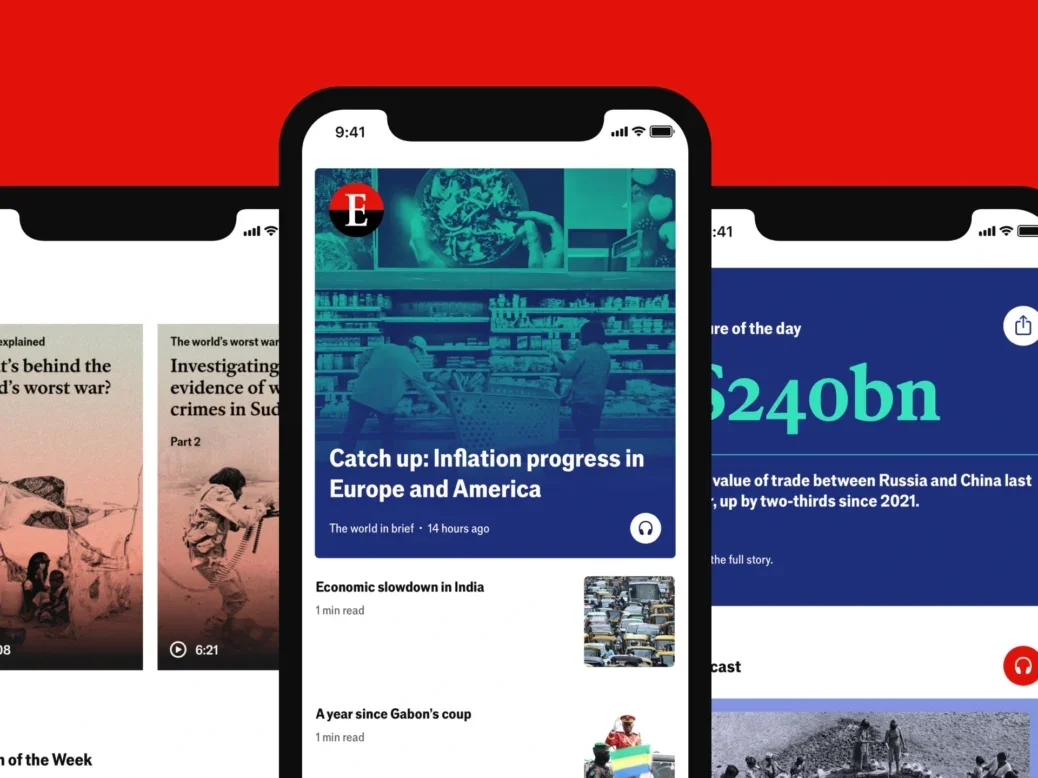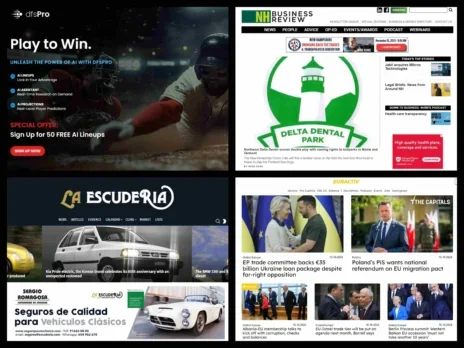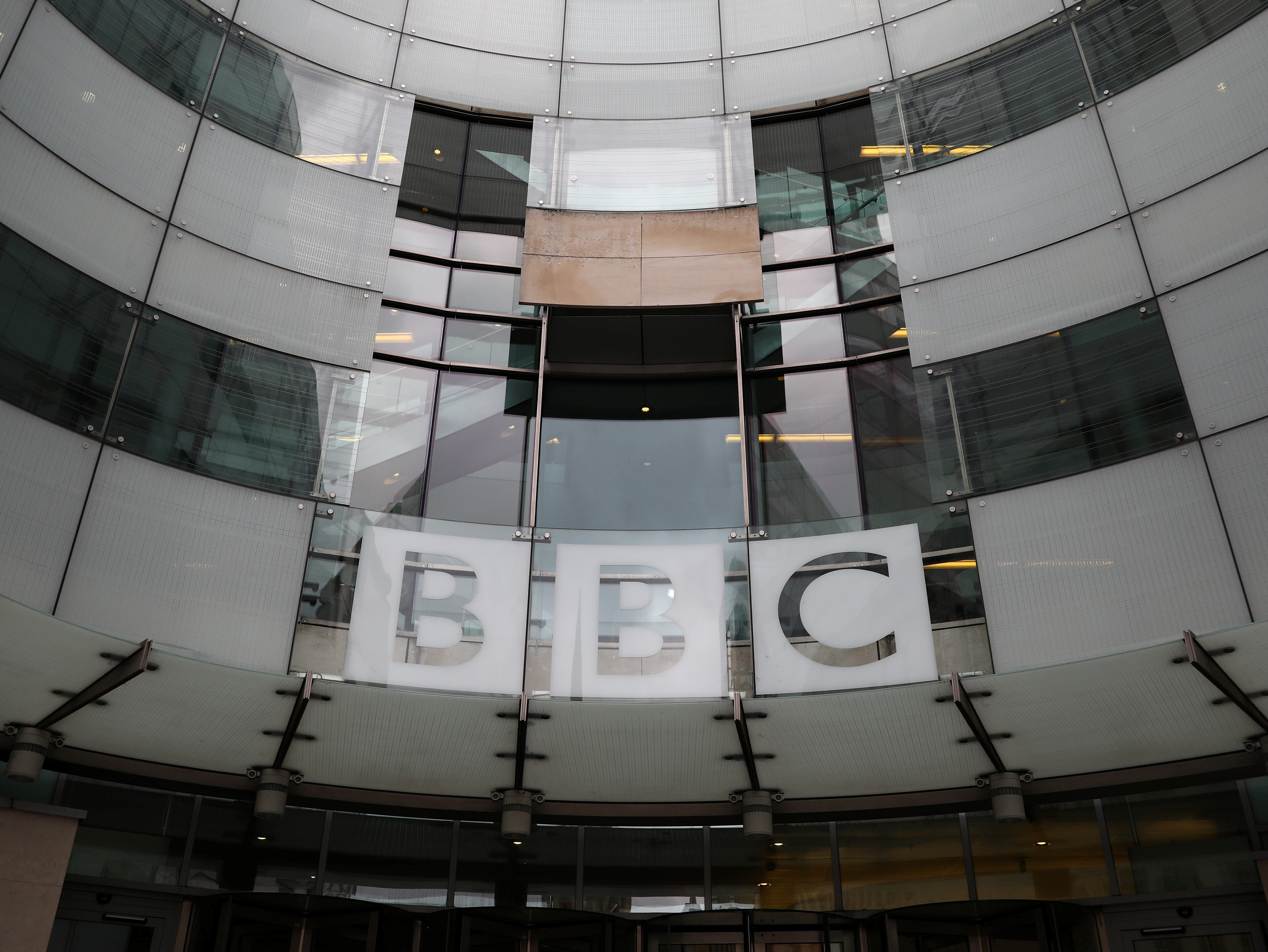
The Economist has “returned to brand advertising” and rolled out free subscriptions for students as part of a bid to “future-proof” the business, its vice president of performance marketing has said.
Tom McCave also argued that although publisher advertising budgets are often among the first things to be cut during cost-saving exercises, such an approach ultimately “stalls” growth.
The free subscriptions offer began to roll out at the end of July, providing high school and university students aged 16 and older free access to its cut-price Espresso app.
Espresso gives its readers five articles and a podcast a day as well as four long reads a week, and normally costs £7.90 a month or £79 for the year.
[Read more: The Economist is attracting younger readers with cut-price Espresso digital edition]
McCave told the Twipe Digital Growth Summit in Brussels last week that young readers are “really important for future-proofing our business” at The Economist, which drew around 60% of its revenue from its 1.2 million subscribers (of whom 697,000 were digital-only) in 2023. Espresso currently has just over 20,000 subscribers.
He acknowledged that “it may feel like a backward step” for the title to offer its journalism for free: much of the news industry has turned away from free news, with the trend being toward the creation of new paywalls rather than the lowering of them.
But he said The Economist was betting it could create “a habit” among its most frequent student readers.
“Over the course of that three or four years of study, we’ve given those students a taster of what Economist journalism is and what quality journalism is. And then at that point, they either move on to Espresso or, fingers crossed, they go for a core Economist subscription.”
The offer was first pushed through The Economist’s regular student subscription page – the publisher also offers students 75% off its main digital subscription – but was ultimately pushed out through means including “a big Tiktok campaign”, Google search ads, podcasts and “lots of campus outreach at university campuses and schools across the world”.
In the first month after the offer launched, he said, Espresso’s total user base doubled, with the number of 18 to 24 year-olds on the app increasing by 12 times. The effort was supported by Espresso’s recent roll-out of an AI-enabled translation system which supports German, French, Spanish and Mandarin readers.
“We believe that that sideways step will help to secure our audience for tomorrow.”
[Read more: How The Economist is using AI to extend its global reach]
‘Pulling back on brand investment leads to problems down the road’
McCave also gave some details on The Economist’s podcast-only subscription, which launched last year, saying its subscribers are more likely to be women than mainline Economist subscribers and are on average ten years younger.
The podcast subscription costs £4.90 a month, versus £21.90 for a full digital subscription. But around half of the podcast-only subscribers do not subscribe to any other Economist products, which McCave said “gives us some comfort that we aren’t eating our own lunch – we’re not cannibalising the 1.2 million subscribers that we have for The Economist”.
The free student Espresso subscription is not the only time The Economist has dabbled in paid marketing recently.
McCave said they were “bringing back” brand marketing at The Economist: “In the last year we’ve made a return to brand advertising to remind those who know a little bit about us what we stand for and to appeal to some new audiences that didn’t know very much about us at all.”
That campaign included billboards in London and New York, ads on radio and podcasts and sponsorships at Wimbledon and the US Open.
He said: “I believe passionately that building brand awareness is critical. We often see brand marketing is the first thing to get cut because its impact is not immediately visible.
“But pulling back on brand investment leads to problems down the road: it leads to declining awareness, which ends up equaling smaller audiences. That then puts up subscriber acquisition costs and ultimately you start to stall growth.
“That’s why consistency and focusing on marketing effectiveness, rather than marketing efficiency, is so important. I would say never underestimate the power of brand equity – it makes your brand distinct and recognisable.
“Consistent branding gives you a competitive advantage and it lowers acquisition costs. It helps to build an emotional connection that encourages repeat purchase, creates brand advocacy – it also creates an amazing feeling within the business as well, it improves employee engagement, that brings teams together, it attracts talent, and ultimately it pushes the business forward.”
For now, however, the concrete effects of this investment at The Economist appear to be limited.
McCave said that since the campaign began “ad recall has improved, unaided brand awareness – a metric which is notoriously hard to shift – has doubled.
“People are becoming more familiar with our brand and more of our audiences would recommend The Economist to a friend or a colleague.
“Is it translating into sales? Maybe not quite yet. But ultimately, this is a long game – this is a one, two, three year game rather than a next week game.”
Email pged@pressgazette.co.uk to point out mistakes, provide story tips or send in a letter for publication on our "Letters Page" blog




